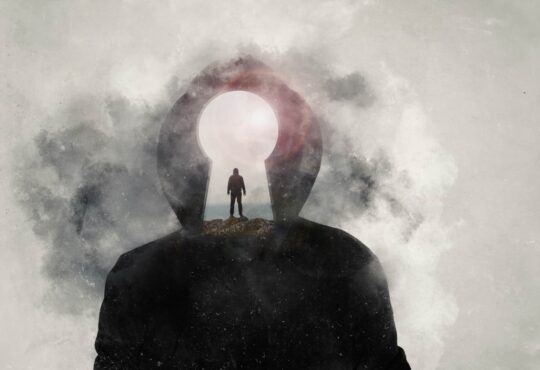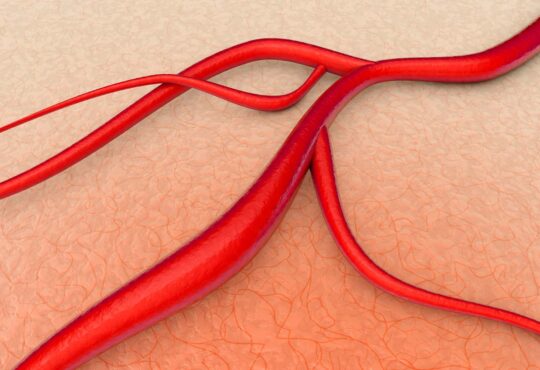
A friend of mine tells me how a single night’s sleep “cured” him of severe (though nonclinical) depression and loneliness.
He desperately wanted to find the love of his life, but the women he had crushes on didn’t return his feelings. This caused intense sadness.
One night, the misery simply overwhelmed him. He remembers taking off a sock in his living room while thinking he didn’t know how he could go on living in such emotional torment.
The next thing he recalls – the following morning – he was waking up in bed.
The sun was shining. The clear sky was a delightful blue color. The birds were singing.
Absolutely nothing objective in his life had changed except the passage of 12 hours.
But, somehow, his attitude shifted 180 degrees. He didn’t “interpret” whatever he dreamed that night – he doesn’t even remember going to bed.
Unfortunately, I can’t promise you dreams will solve all your problems in one night. It’s not like my friend hasn’t suffered other challenges in life since then.
Still, getting sufficient sleep and experiencing dreams can definitely help you cope with your own challenges.
Why Do We Dream?
People have wondered that since the beginning. Many have believed the gods or spirits spoke to them in their dreams. Dreams have inspired novels and songs. They’ve solved scientific puzzles. Psychoanalysis studies them for clues to the patient’s mental illness.
What does modern science say?
The subject is still controversial. Traditionally, before Freud, science said dreams had no meaning or purpose. They were a sort of mental static leftover from the day. Some scientists still claim this.
But modern research is finding dreams are critical for both learning and unlearning – and for shaping our memories of the day.
Every day, we experience a huge amount of information. How we feel at every moment. Casual contacts with people. Ordinary events. The news.
During sleep, our brains sort through this and decide how much and what to remember and what isn’t worth adding to our long-term mental database.
This is also good because it enables us to “forget” unpleasant events. Your best friend stabs you in the back. Your boss berates you in a staff meeting. During rush hour another driver gives you the finger.
Sleep helps you forget the crystal sharp pain and, maybe, the event itself. Or helps you decide to improve your job performance so your boss won’t criticize you again.
Dreams are what help us put the painful past behind us, so we integrate unpleasant events and “move on.”
Science has Learned We Need to Dream
Whatever is going on in our minds and brains during REM (the Rapid Eye Movement stage of sleep), we need it.
In experiments, sleep researchers woke volunteers every time they entered REM, preventing them from having dreams. When the volunteers were allowed to sleep uninterrupted, they went through a rebound phase, spending large amounts of time in REM to make up for the deprivation.
According to Rubin Naiman Ph.D, a sleep and dream specialist, poor or insufficient dreaming is strongly linked to emotional disturbances, depression and anxiety.
Dreaming is strongly linked to learning, so students who stay up late are actually limiting what they remember – even if they’re studying instead of partying.
REM Increases as the Night Goes On
We sleep in 90-minute cycles. In total, adults spend about 25% of their sleep time in REM, but that’s concentrated in the later hours.
Early in the night, we spend the most time in dreamless, deep slow-wave sleep. This is probably because the body uses this phase to repair, rebuild and restore whatever we’ve done to it during the day.
But after around 6 hours, we spend a lot of time in REM. That’s why, if you remember your dreams, you probably know you have most of them in the early morning.
If you can sleep late, most of that time is spent dreaming.
That’s one more argument in favor of getting 7-9 hours every night – so you experience optimal amounts of REM sleep.
One Mechanism for Meeting Challenges
During REM sleep, our levels of adrenaline drop to zero. That’s important because adrenaline prepares us to meet danger, so it’s the biochemical of fear.
No adrenaline, no fear.
So, during REM sleep, our minds replay frightening experiences and attempt to integrate worries about the future – but without adrenaline, so the emotion is removed.
That may be what enables our dreams to help us move on, past unpleasant and frightening events – or to deal with various forms of anxiety.
The seemingly obvious exception is nightmares. However, research says nightmares don’t occur in REM sleep, but in slow-wave sleep.
A REM Deficit Can Cause General Fear and Anxiety
Some people have trouble putting the events of their lives into a reasonable perspective. They fail to keep things in context and in their own category.
That’s sort of vague, but what happens is, people attach too much meaning – or wrong meanings – to small events.
Maybe a black cat crosses your path, and you take it as a bad omen. Really, it was a cat that just happened to be black and just happened to run in front of you. And that says absolutely zero about your future.
And, of course, this generalized misperception of reality doesn’t have to pertain to standard superstitions. We’re all quite capable of making up our own delusions – or of believing the latest Internet conspiracy theory.
Getting enough REM sleep, in other words, helps us think more rationally. The inner conscious mind that writes and directs your dreams, therefore, is like your own inner psychotherapist on command.
It could be that a long sleep full of REM helped my friend understand life was still good. Maybe he was lonely now, but the right woman would come along in the future.
Sweet dreams!
https://www.mentalfloss.com/article/66007/15-songs-came-dreams
https://owlcation.com/humanities/Novels-Inspired-by-Dreams
https://www.ncbi.nlm.nih.gov/pmc/articles/PMC3166790/
https://www.smithsonianmag.com/science-nature/the-stubborn-scientist-who-unraveled-a-mystery-of-the-night-91514538/
https://www.ncbi.nlm.nih.gov/books/NBK11121/
https://www.youtube.com/watch?v=Xu1FMCxoEFc&t=756s
https://www.youtube.com/watch?v=gbQFSMayJxk
https://www.youtube.com/watch?v=nm1TxQj9IsQ&t=3s
https://www.youtube.com/watch?v=nwSkFq4tyC0&t=981s
https://www.youtube.com/watch?v=NAATB55oxeQ
https://www.youtube.com/watch?v=bEbtf7uS6P8&t=7918s
https://www.amazon.com/Why-We-Sleep-Matthew-Walker-audiobook/dp/B0752XRB5F/







